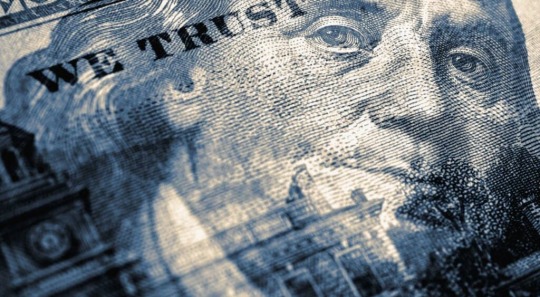#U.S. Bond ETFs
Explore tagged Tumblr posts
Text
Strategic U.S. Bond ETF Investment: Timing and Analysis
Table of contentsUnderstanding Bond Price Movements in Response to Interest Rate ChangesWhy do I invest in US bonds?1. Anticipating Interest Rate Trends: The Peak of Federal Reserve Hikes and Their Impact on Bonds2. Identifying Market Momentum: The Role of Moving Averages in My Bond Investment Strategy3. Independent Strategy: Navigating the Underappreciated Bond MarketRisks of Bond InvestmentHow…

View On WordPress
#Bond Market Trends#Bond Price Analysis#Federal Reserve Interest Rates#Interest Rate Impact on Bonds#Investment Strategy#Retirement Pension Planning#Technical Analysis in Bonds#U.S. Bond ETFs
0 notes
Text
Green Finance: Investing with a Focus on Sustainability
In a world increasingly concerned about environmental issues, sustainability has become a buzzword in various aspects of life, including finance. Green finance, also known as sustainable finance or ethical investing, is a concept that’s gaining traction. It’s all about putting your money to work in ways that not only generate returns but also contribute to a more sustainable and environmentally…

View On WordPress
#Brookfield Renewable Partners#Diversify#Enphase Energy (ENPH)#Environmental Impact#Ethical Considerations#Financial Returns#First Solar#Green Bonds:#Green Finance#Hydroelectric Power#Investing#iShares MSCI Global Impact ETF (SDG)#passive income#Procter & Gamble (P&G) Green Bonds#SunPower#Sustainability#Sustainable Funds#Tesla (TSLA)#Vanguard ESG U.S. Stock ETF (ESGV)#Vestas Wind Systems#Waste Management (WM)
0 notes
Photo

Deja Vu: After Fitch's Cut To US Credit Rating, A Look At The Market Fallout From S&P's 2011 Downgrade The recent downgrade of the US sovereign credit rating from AAA to AA+ by Fitch Ratings has brought back memories of a similar event occurred exactly 12 years ago. On Aug. 6, 2011, S&P made history by downgrading the U.S. credit rating from AAA to AA+ for the first time since 1941. S&P downgraded the nation’s credit rating in August 2011 after Washington avoided a default by temporarily increasing the debt ceiling, just as it did again in June of this year. Increased political polarization and a lack of action to improve the country’s financial situation led to this decision. How Did Markets React To 2011 Sovereign Credit Rating Downgrade? The U.S. credit downgrade was not the only negative news impacting the markets back then. The eurozone was in the clutches of a sovereign debt crisis, with worries of PIGS — an abbreviation for Portugal, Italy, Greece and Spain — defaults. As soon as the markets reopened on Monday, Aug. 8 following the weekend break, global stocks sold ...Full story available on Benzinga.com https://www.benzinga.com/government/23/08/33526726/deja-vu-after-fitchs-cut-to-us-credit-rating-a-look-at-the-market-fallout-from-s-ps-2011-downgrade
#credit rating#DIA#Downgrade#Fitch Ratings#GLD#Government#QQQ#rating agencies#S&P#S&P Global#SPY#U.S. credit rating downgrade#UUP#Bonds#Broad U.S. Equity ETFs#Specialty ETFs#New ETFs#Commodities#Currency ETFs#Tech#ETFs#US78467X1090#US78463V1070#US78462F1030#US73936D1072
0 notes
Text
Emma Mae Weber at MMFA:
Right-wing media attacked Minnesota Gov. Tim Walz, the Democratic nominee for vice president, for not owning stocks, bonds, or real estate. While some have celebrated Walz’s portfolio, or lack thereof, some right-wing media figures have drawn absurd conclusions about Walz’s ability to understand the economy or his support of capitalism because of his economic standing.
According to recent financial disclosures, Democratic vice presidential candidate Tim Walz doesn’t own stocks or securities. He also does not currently own any real estate. Walz and his wife Gwen Walz sold their most recent home and moved into the governor’s mansion in 2019 when Walz became the governor of Minnesota. Per the disclosures, the only investments Walz holds are his retirement, pension, and life insurance accounts. [The Hill, 8/7/24; The New York Times, 8/9/24]
It’s rare for elected officials not to hold financial assets, and some people are celebrating the modesty of Walz’s portfolio. Walz and his wife also reported no mutual funds, bonds, private equities, book deals, speaking fees, cryptocurrency, or racehorse interests. [Axios, 8/7/24; The Wall Street Journal, 8/12/24]
Most Americans don’t own stocks, bonds, or cryptocurrency. A Federal Reserve report on Americans’ economic well-being shows that just 31% of non-retirees in America own “Stocks, bonds, ETFs, or mutual funds held outside a retirement account.” The number only goes up to 35% for all adult Americans. The report also shows that 64% of Americans in 2023 owned a home, and that just 7% of Americans held or used cryptocurrency in 2023. [Federal Reserve, Economic Well-Being of U.S. Households in 2023, 5/24]
As a member of Congress in 2011, Walz co-sponsored the STOCK Act in an attempt to combat insider trading. Signed into law in 2012 by then-President Barack Obama, the STOCK Act aimed to prevent lawmakers and congressional staffers from trading on non-public information. While pushing for the legislation, Walz spoke about the importance of “restoring faith” among Americans that their lawmakers are not in office only to enrich themselves. [USA Today, 8/9/24; Twitter/X, 8/7/24]
What will the right-wing media whine about this time in regards to Tim Walz? Having a financial portfolio of an average American, and one that doesn’t have any stock market or bond investments.
39 notes
·
View notes
Text
In a landmark decision, the U.S. Securities and Exchange Commission (SEC) has granted Nasdaq approval to list options on the iShares Bitcoin Trust ETF. This pivotal move is expected to significantly elevate investor interest and enhance liquidity surrounding Bitcoin ETFs, a market that has seen transformative growth over the past few years. The implications of this approval extend beyond mere numbers. With increased investor engagement anticipated, the approval of derivatives linked to Bitcoin ETFs offers a structured method for traditional investors to gain exposure to cryptocurrencies. For many investors, navigating the world of cryptocurrencies can be overwhelming. Options provide them with a familiar instrument that allows for hedging against potential price declines, thereby instilling a sense of security in a traditionally volatile market. Eric Balchunas, a Bloomberg Intelligence ETF analyst, emphasized the importance of SEC approval in attracting institutional investors. He noted that this development will likely spur a wave of larger investments into Bitcoin ETFs, driven by the appeal of added market stability that options can provide. The iShares Bitcoin Trust ETF, traded under ticker symbol IBIT, has already attracted a staggering $22.7 billion in assets since its approval by the SEC earlier this year. The journey towards this approval was marred by legal challenges initiated by Grayscale Investments, highlighting the contentious nature of cryptocurrency regulation. Investors should note that while this approval marks an exciting progression for the cryptocurrency market, further steps remain before trading can commence. Future approvals from the Options Clearing Corporation and the Commodity Futures Trading Commission are necessary. This requirement underscores the careful regulatory framework that seeks to integrate digital assets into traditional financial systems while safeguarding investor interests. The growing momentum around Bitcoin ETFs can be likened to the tumultuous yet rewarding nature of technological innovations in the past. For instance, the introduction of options and futures contracts to traditional commodities markets ultimately led to increased participation and fluidity within those markets. Similarly, the integration of Bitcoin options could pave the way for mainstream adoption of Bitcoin and cryptocurrencies at large. Moreover, this movement is taking place against the backdrop of other exchanges also pursuing approval for similar products. The competitive dynamics of various exchanges jockeying for regulatory nods will likely lead to diversified options for investors. Each new product launched fosters an environment ripe for innovation and expanded financial tools for investors, which could ultimately serve to legitimize Bitcoin and digital assets further in the eyes of the mainstream financial community. Beyond just numbers and approvals, this approval symbolizes a notable shift in institutional perceptions toward cryptocurrencies. More organizations are recognizing Bitcoin as a valuable asset class rather than a speculative deviation. This shift could herald a new era where Bitcoin and other cryptocurrencies assert themselves in traditional investment portfolios alongside equities and bonds. The trends from this approval extend to broader economic implications. As financial products related to digital currencies become more accessible and regulated, we can expect a surge in educational resources and investment strategies aimed at demystifying cryptocurrencies for the average investor. Just as earlier technological innovations transformed industries, the recent approval may stimulate a renaissance in the global financial markets, facilitating a more integrated approach to digital assets. As we navigate these changes, it's crucial for investors to stay informed and astutely assess the evolving landscape. Interest in Bitcoin and other cryptocurrencies remains robust, as public sentiment increasingly favors innovation and adaptability in the financial markets.
With Nasdaq's recent breakthrough, the foundations are being laid for a future where digital assets might not only coexist with traditional investment vehicles but thrive alongside them. In conclusion, Nasdaq's approval to list options on Bitcoin ETFs represents a critical juncture in the cryptocurrency market. This decision not only reflects changing regulatory perspectives but also underscores the demand for sophisticated financial products that can cater to both retail and institutional investors. As we look ahead, the potential for heightened liquidity, better risk management tools, and increased investor participation could well shape the future of the cryptocurrency landscape.
3 notes
·
View notes
Text
Goldman Sachs is set to enhance its cryptocurrency initiatives by launching three major tokenization projects by the end of the year, as noted by Digital Assets Global Head Mathew McDermott. Tokenization involves converting real-world assets into digital tokens on blockchain platforms. These projects aim to meet the rising demand from major clients, with one being the first of its kind in the U.S. Despite internal debates on cryptocurrencies' viability, Goldman Sachs remains actively involved in trading crypto derivatives and ETFs. Tokenization is a key part of their strategy, following previous efforts like bond issuances and launching an asset tokenization platform in 2023. McDermott contrasts Goldman’s institutional focus with other firms targeting retail customers using public blockchains. He is optimistic about future opportunities, possibly including trading spot crypto assets, pending regulatory approval. Meanwhile, MANTRA Chain, in partnership with UAE's MAG, is also advancing in tokenizing $500 million in real estate assets.
2 notes
·
View notes